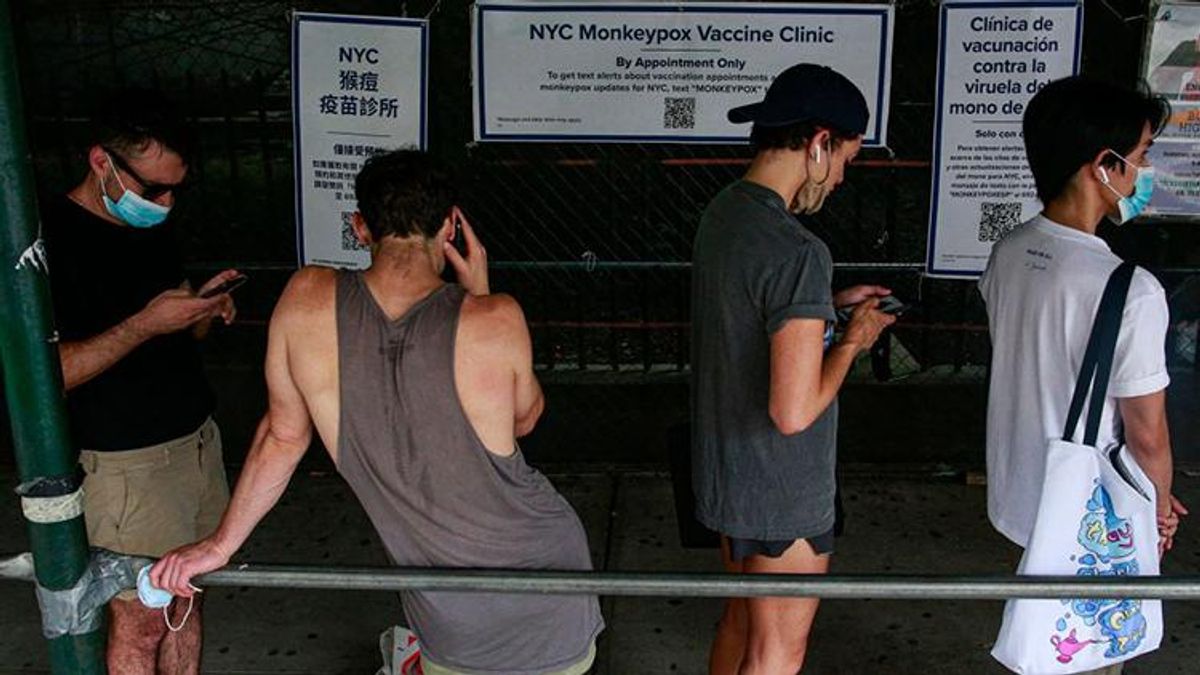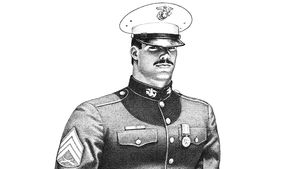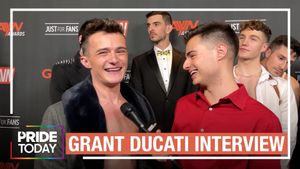As case counts increase and criticism grows over the administration's handling of the monkeypox outbreak, the Biden administration on Thursday declared it a public health emergency.
The designation signals that the disease now poses a significant threat to Americans, and the government is increasing its implementation of measures to contain it.
More than a week after the World Health Organization declared a global health emergency over the MPV outbreak, the U.S. federal government has been authorized to use funds to develop and evaluate vaccines, obtain emergency funding, and hire additional workers to fight it.
"We're prepared to take our response to the next level in addressing this virus, and we urge every American to take monkeypox seriously," Health and Human Services Secretary Xavier Becerra said in announcing the declaration during a call with reporters Thursday afternoon.
President Joe Biden and Becerra have been under intense pressure from activists and public health experts to move more aggressively to combat the outbreak.
Earlier this week, Biden named Dr. Demetre Daskalakis, a veteran emergency response official and a respected infectious disease specialist who has overseen HIV/AIDS prevention efforts by the Centers for Disease Control and Prevention, to help coordinate the MPV response from the White House -- a sign that the administration is stepping up its efforts. Biden selected FEMA's Robert Fenton as coordinator and Daskalakis as deputy coordinator.
The CDC reports that there have been more than 6,600 confirmed MPV cases in the U.S.
Supplies of the monkeypox vaccine, called Jynneos, have been severely constrained, and the administration has been criticized for moving too slowly to expand the number of doses. Declaring the emergency would not ease that shortage, but the administration may take steps to allow quicker access to tecovirimat, the drug recommended for treating the disease.
Additionally, the Food and Drug Administration Commissioner Robert Califf announced Thursday that the agency was considering allowing Bavarian Nordic's Jynneos, the only monkeypox vaccine licensed in the U.S., to be administered subcutaneously in two doses one-fifth the size of its licensed dose. Currently, the vaccine is licensed as a two-dose product, given 28 days apart by intramuscular injection.
As a result, five times more people could be vaccinated with existing supplies than with the licensed dosage, making a single-dose vial available for five uses.
"We believe this could be a promising approach," Califf said.
In general, federal agencies like the CDC cannot compel states to share data on vaccinations or cases of the disease. However, declaring an emergency allows them more access to health care providers and state information.
Daskalakis said that the administration is reaching out to community-based organizations that don't serve only major cities to reach people at risk for MPV infection.
He said that through "having engagement, especially in the LGBTQ space with LGBTQ centers, many of which serve rural areas," the administration seeks to provide MPV outreach to members of at-risk communities wherever they are.
The majority of MPV cases have been among men who have sex with men, according to the WHO. However, anyone can catch the virus.
In the age of social media targeting messages on those platforms has been shown to penetrate and get notifications through to rural communities, Daskalakis added.
CDC director Dr. Rochelle Walensky added that communication with LGBTQ+ stakeholders has been crucial.
"Our partners in the LGBTQ community...have just been essential to get the message out," she said.
Becerra addressed the concerns of people who live in rural America and are also thinking about MPV.
"We have, from the beginning, made sure that we have kept in mind all communities, including communities that may not be in the most densely populated portions of the country or aren't reporting as high a number of cases," Becerra said concerning the administration's actions beyond major cities.
"We try to make sure we get to those areas of the country where there are high numbers of cases, but we don't want to leave people out. And so we have made sure that we have allocated vaccines throughout the country through all jurisdictions," Becerra added.
For more information on monkeypox, please visit the CDC's website here.



















































































